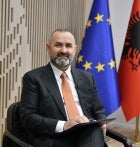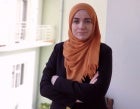Breadcrumb
Stories
Topic
- Show all (1287)
- Institutional mechanisms (-) (8)
- Capacity development (-) (2)
- Disaster risk reduction (-) (2)
- Ending violence against women and girls (72)
- Gender equality and women’s empowerment (45)
- Anti-violence interventions (42)
- Gender discrimination (38)
- Gender equality and inequality (38)
- Domestic violence/interpersonal violence (36)
- Access to justice and legal protection (34)
- Legal assistance (30)
- Laws, legislation (27)
- Primary prevention (25)
- Gender-responsive budgeting (24)
- Sexual harassment (24)
- Feminicide/femicide (23)
- Service delivery (23)
- Economic empowerment (22)
- Rape/sexual assault (21)
- Shelters (21)
- Employment (20)
- Rural women (19)
- Entrepreneurship (18)
- Decision-making (16)
- Youth (16)
- Gender power relations (15)
- Women’s rights (15)
- COVID-19 (14)
- Financing for gender equality (13)
- Gender mainstreaming (13)
- Civil society (12)
- Gender, culture and society (12)
- Men and boys (masculinity) (12)
- Political empowerment (12)
- Access to basic services (11)
- Adolescents (11)
- Beijing Platform for Action (11)
- Businesses and foundations (11)
- Girls (11)
- Human rights (11)
- UNiTE campaign (11)
- Civil society participation (10)
- Peace and security (10)
- Safe Cities and Safe Public Spaces (10)
- Training (10)
- Women with disabilities (10)
- Convention on the Elimination of All Forms of Discrimination against Women (CEDAW) (9)
- Financial resources (9)
- Gender stereotypes (9)
- Information and communications technology (ICT) (9)
- Leadership and political participation (9)
- National planning (9)
- Partnerships (9)
- Governance (8)
- Innovation and technology (8)
- Peacebuilding (8)
- Social protection (8)
- Women farmers (8)
- Citizen engagement (7)
- Gender statistics (7)
- Generation Equality (7)
- Government contributors (7)
- Productive resources (7)
- Religion (7)
- Science and technology for development (7)
- Sports (7)
- Trafficking/sexual exploitation (7)
- Women’s movements (7)
- 2030 Agenda for Sustainable Development (6)
- Child marriage (6)
- Communications and media (6)
- Electoral systems and processes (6)
- Lesbian, gay, bisexual, transgender, intersex (LGBT) rights (6)
- Markets (6)
- Political violence (6)
- Sex-disaggregated data (6)
- Sustainable Development Goals (SDGs) (6)
- Traditional media (6)
- Unpaid work (6)
- Accountability (5)
- Gender data production and collection (5)
- Governance and national planning (5)
- New media (5)
- Rural development (5)
- Constitutions and legal reform (4)
- Gender data gaps (4)
- Gender data use and accessibility (4)
- Gender wage gap (4)
- Health (4)
- Intergovernmental processes (4)
- Land and property (4)
- Media leadership (4)
- Poverty (4)
- Public administration (4)
- Rule of law (4)
- Schooling (4)
- Accountability in the UN system (3)
- Climate change (3)
- Crisis response and recovery (3)
- Education (3)
- Environmental protection (3)
- Gender equality indicators (3)
- Health care services (3)
- Inheritance rights (3)
- Living conditions (3)
- National mechanisms (3)
- National statistical systems (3)
- Parliamentary development (3)
- UN Security Council resolution 1325 (3)
- UN system coordination (3)
- Coordination, knowledge management (2)
- Food security (2)
- Fundamental freedoms (2)
- Fund for Gender Equality (2)
- Harmful practices (2)
- Humanitarian action (2)
- Human rights–based approach (2)
- Macroeconomic policies (2)
- Monitoring and evaluation (2)
- Planning and monitoring (2)
- Sexual and reproductive health and rights (2)
- UN Security Council resolutions (2)
- Urban development (2)
- Åsa Regnér, Deputy Executive Director for Policy, Programme, Civil Society and Intergovernmental Support (1)
- Children’s rights (1)
- Commission on the Status of Women (1)
- Executive Director (1)
- Financial and economic crisis (1)
- Green economy (1)
- Literacy (1)
- Local development (1)
- Maternal health (1)
- Migration (1)
- Monitoring, evaluation and reporting (1)
- Peace processes (1)
- Public sector reform (1)
- Sexuality (1)
- Temporary special measures, affirmative action (1)
- UN Trust Fund to End Violence against Women (1)
Region
Country
1 - 12 of 12 Results
Date:
As Albania celebrates three decades since the adoption of the Beijing Declaration, the country continues to make strides in gender equality. An inspiring intergenerational dialogue at a recent event brought together key stakeholders from the Ministry of Health and Social Protection, United Nations Albania, the EU Delegation, and other partners, alongside passionate feminist activists from all generations.
Date:
In this interview, Ulsi Manja, Minister of Justice of Albania, highlights the government's commitment to advancing gender equality through the justice system. He discusses the importance of gender-responsive budgeting, ongoing efforts to address the needs of women and girls, and key interventions such as free legal aid, humane conditions in penal institutions, and measures to combat gender-based violence.
Date:
Monika Kocaqi has dedicated twenty-five years to preventing gender-based violence (GBV) in Albania and her work is far from over. She has led groundbreaking initiatives, including the early implementation of the Domestic Violence Protection Law, overcoming skepticism and driving systemic change. Monika Kocaqi supported the establishment for the first time of the Coordinated Referral Mechanisms and enhanced the legal knowledge of professionals. She has been at the forefront of initiatives like gender-responsive budgeting to secure vital services for survivors of gender-based violence. Her extensive work includes authoring over forty training manuals, strategies, and research studies on GBV and gender mainstreaming in Albania and beyond.
Date:
Supported by UN Women, local organizations like the Center for Community Development "Today for the Future" have empowered women such as Sirije Kumaraku to voice their needs and participate in decision-making processes. This initiative has led to tangible improvements, such as new recreational spaces and better infrastructure in Durrës.
Date:
The UN Resident Coordinator’s Office and UN Women Albania co-organized an online training on the Gender Equality Marker (GEM) and the Human Rights Marker (HRM). The overall aim of the training was to ensure that the GEM and HR Marker scoring will be accurate for the upcoming Joint Work Planning cycle, which will cover the 2024-2025 period. The training was also an important step for ensuring the accuracy of markers is instrumental for adequately score UNCT SWAP Indicator 6.1, which verifies whether adequate resources for gender mainstreaming are allocated and tracked.
Date:
A two-day workshop on gender participatory budgeting and community outreach practices brought together civil society organizations, local government representatives, activists, and gender-responsive budgeting experts from Albania and North Macedonia.
Date:
Thirty experts including government officials from ministries of finances, national gender mechanisms, local government representatives and supreme audit institutions, together with UN Women officials from across the Western Balkans met in Tirana, Albania on 3-4 May to monitor the progress in the implementation of the project “Transformative Financing for Gender Equality towards more Transparent, Inclusive and Accountable Governance in the Western Balkans” In 2022.
Date:
Interview with Michele Ribotta, Head of the UN Gender Group and UN Women Representative in Albania
Date:
Anjeza Bojaxhiu is the local coordinator of the domestic violence referral mechanism – a dedicated mechanism that aims to protect and support survivors of violence, composed of a team of community professionals in Tirana, Albania. With extensive experience in good local governance and social services for women and girls from disadvantaged groups, Ms. Bojaxhiu shares the most promising practices related to establishing and operating local referral systems as well as ways to address challenges that may arise.
Date:
UN Women in Albania, the Office of the UN Resident Coordinator (RCO), and the UN Women Regional Office for Europe and Central Asia organized a training on Monitoring & Evaluation and Gender Data dedicated to UN staff involved in programme management.
Date:
Afërdita Prroni, the Executive Director of the Human Rights in Democracy Center, a grassroot civil society organization involved in promoting and protecting human rights in Albania, has been working to strengthen the implementation of the domestic violence law under UN Joint Programme on “Ending Violence Against Women in Albania” and UN Women’s project “Gender sensitive post-earthquake recovery and reconstruction” funded by the Swedish Government.
Date:
UN Women in collaboration with the Municipality of Kamza, a town 11 km from the capital Tirana, organized an awarding event with 16 women participants of the Women’s Small Business Program. They presented their business ideas and plans in front of a professional jury and business representatives following five months of training and coaching.
1 - 12 of 12 Results










